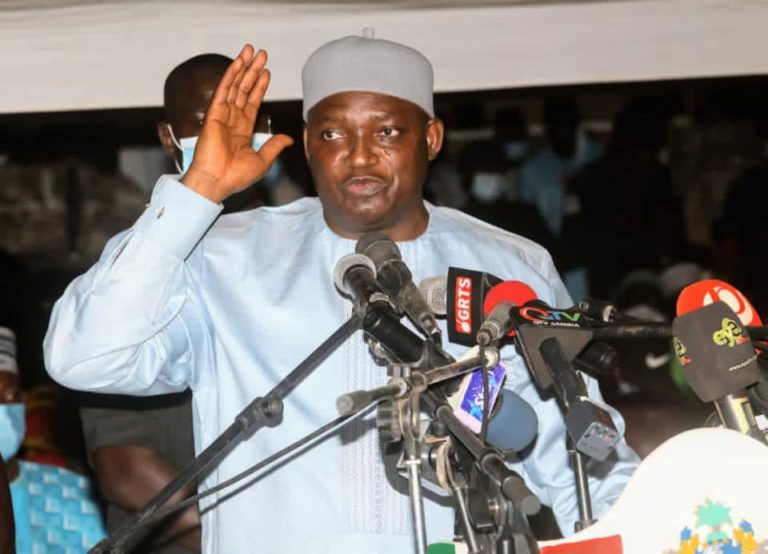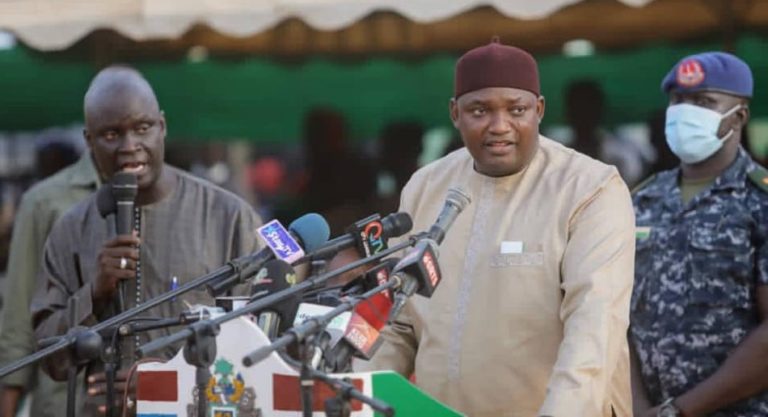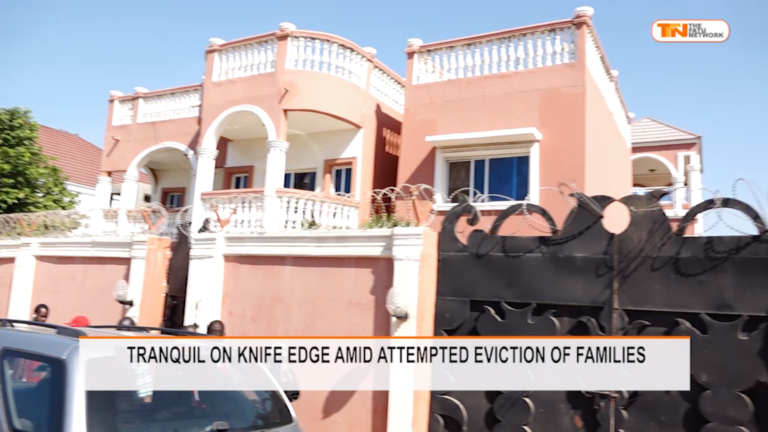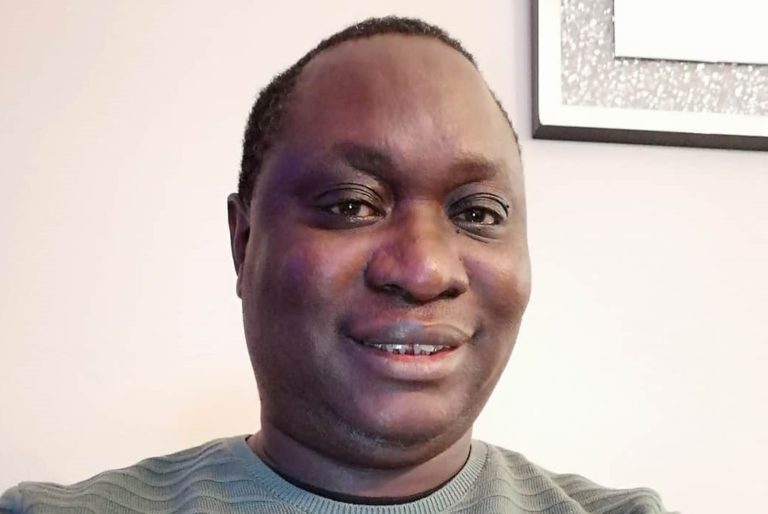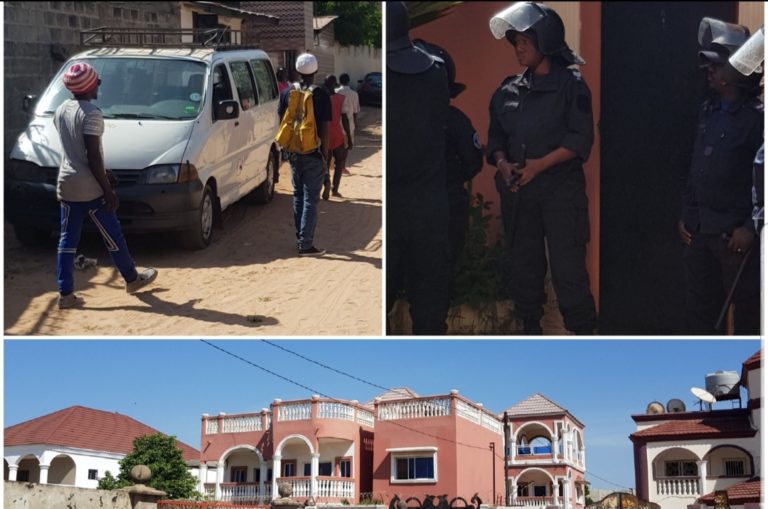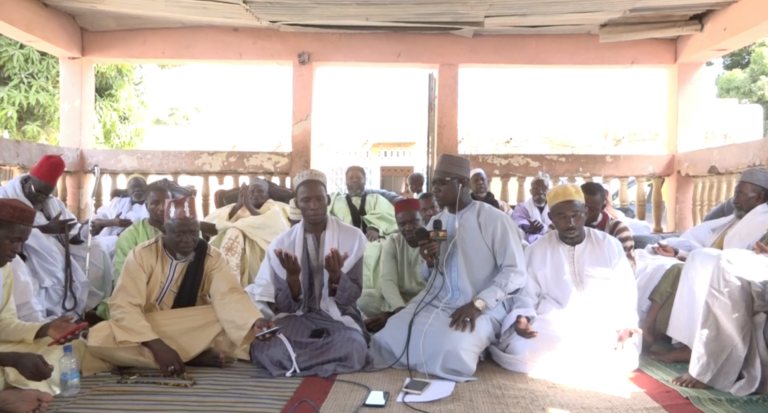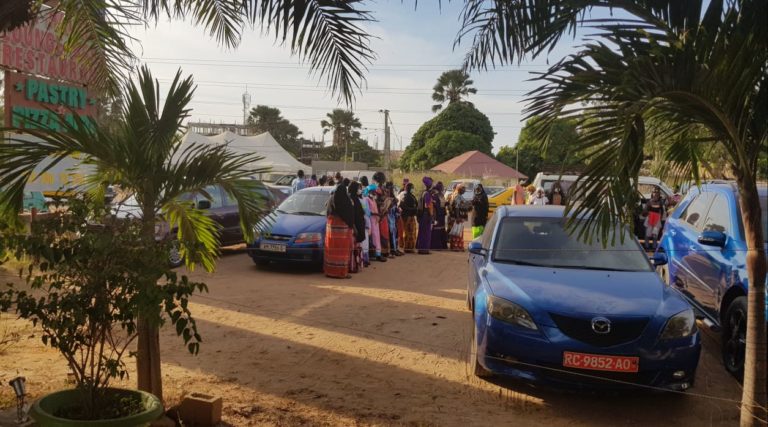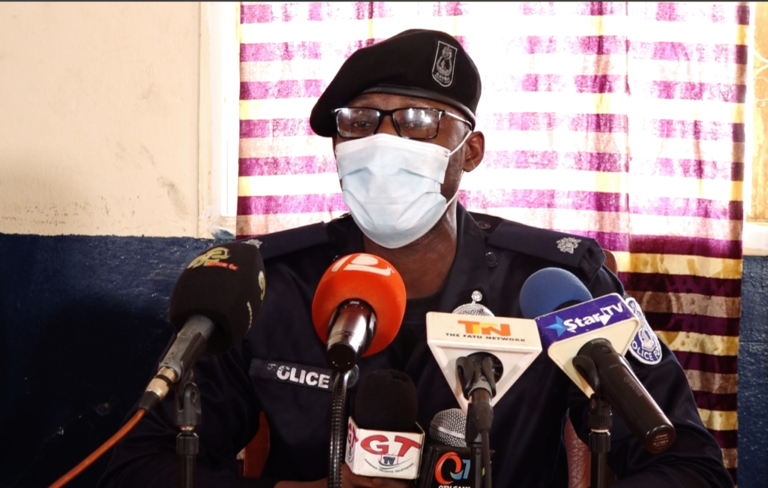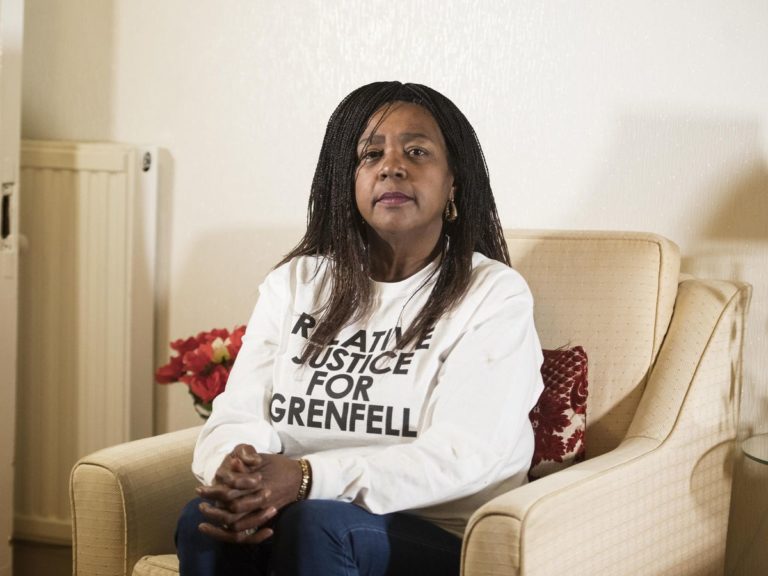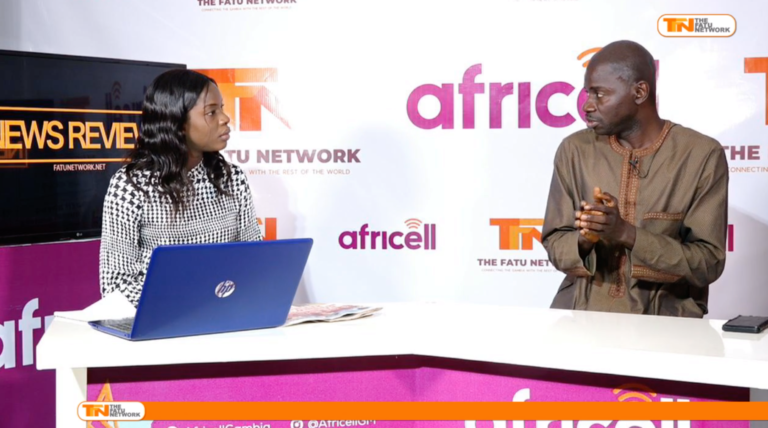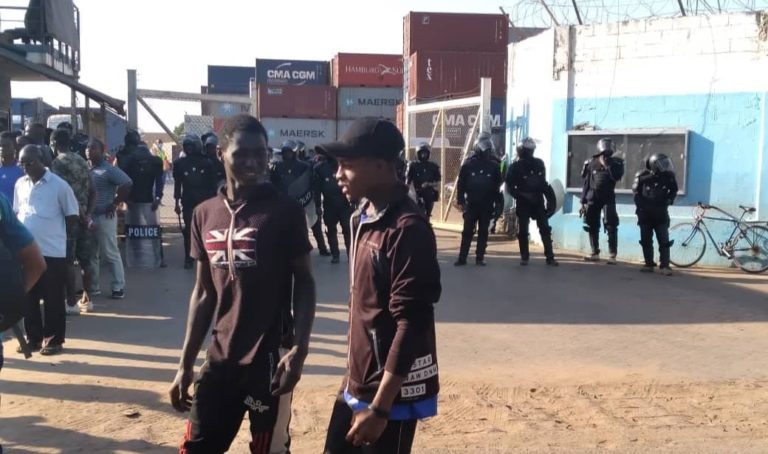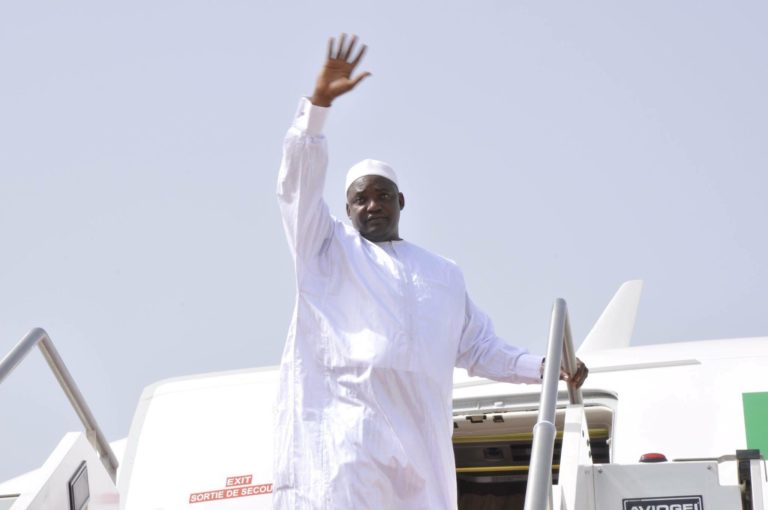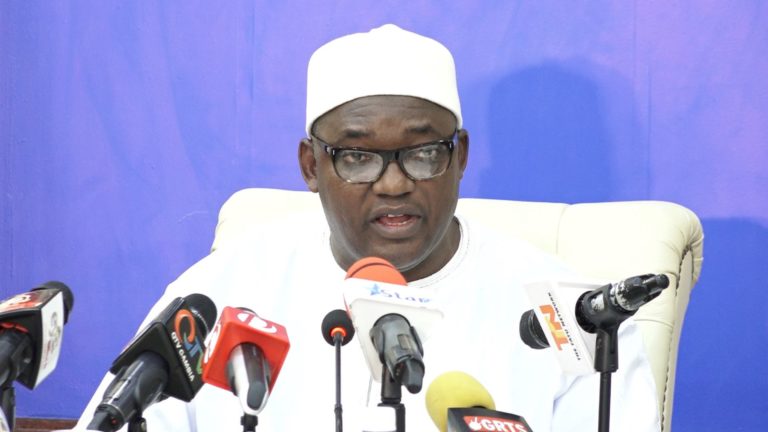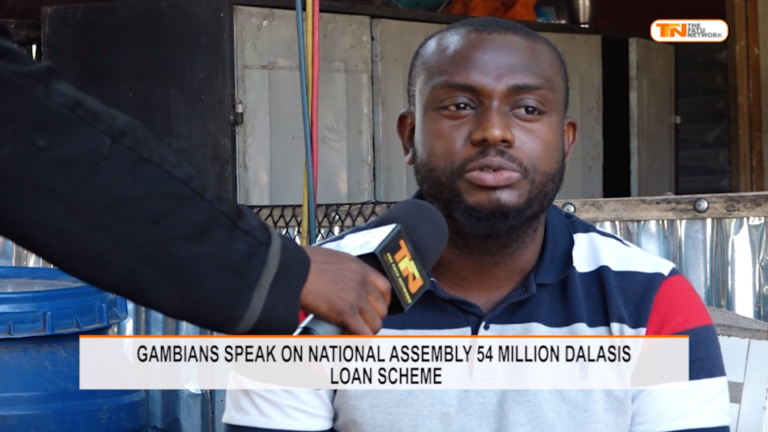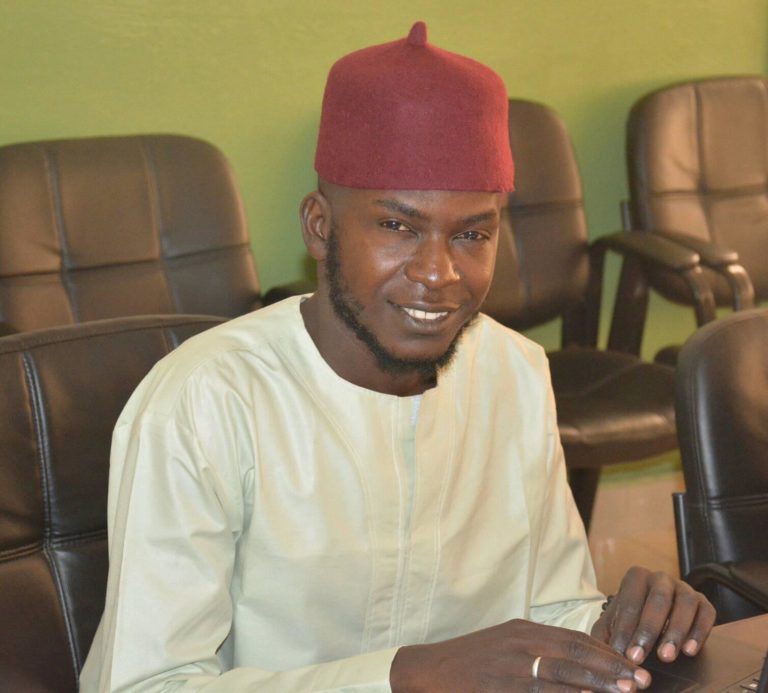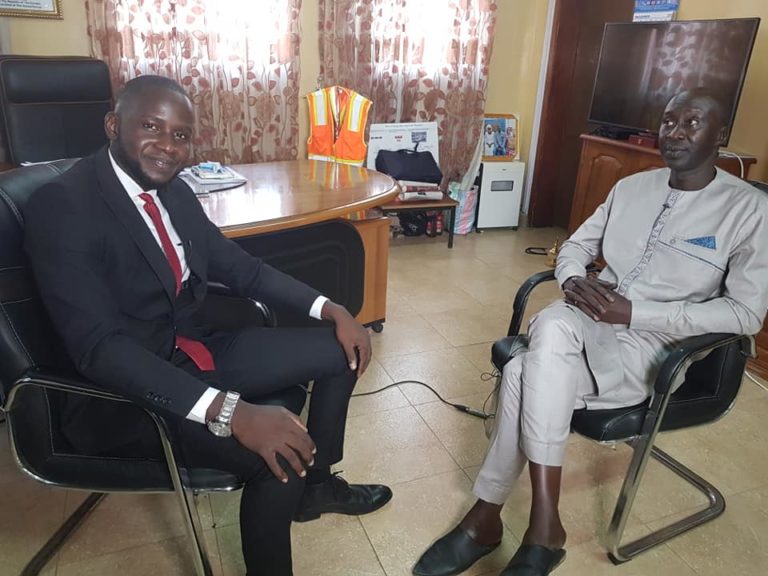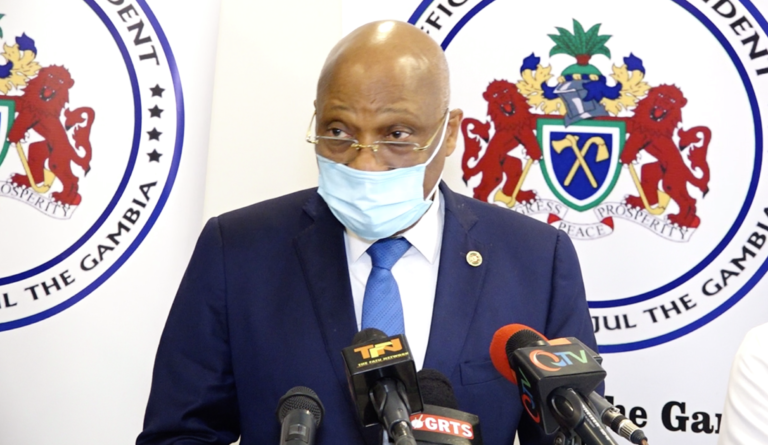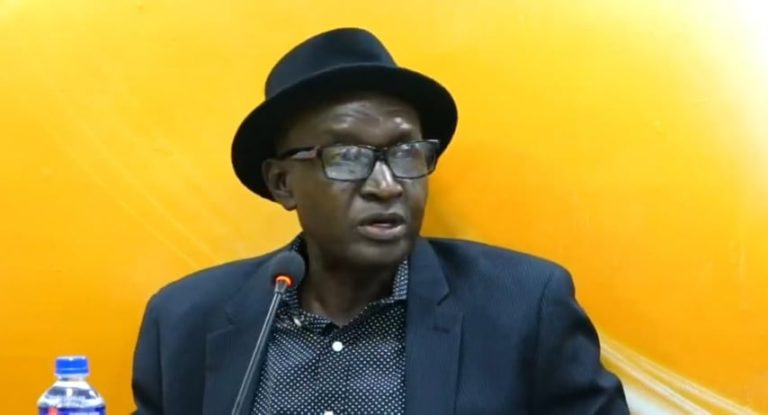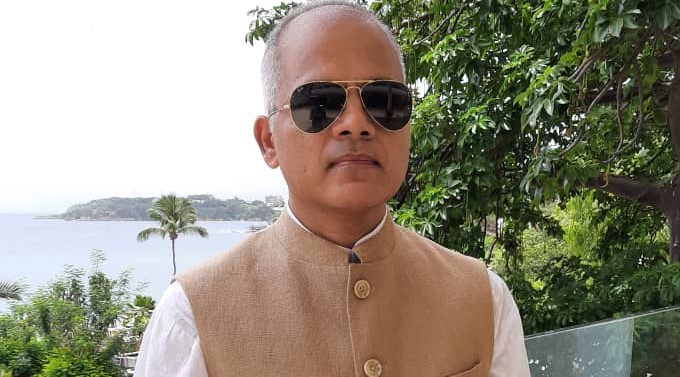Gambia 2021: Good year, good politics and goosebumps
By Sait-Matty JAW & Amat JENG
In 1977, Ousmane Sembène, the Senegalese author and radical socialist intellectual, considered as the father of African cinema, released his film, Ceddo. Senghor, the frenchized president of Senegal at the time, banned the film, arguing that Ceddo should be spelt with a single ‘d’. The underlying theme of the film is what political scientists today would call ‘state capture’. The late Sembène protested and said his goal “is not to please the government.”
By the time The Gambia heads to the polls in 2021, COVID-19 would have been brought under control, paving the way for a global economic recovery and the (re)influx of foreign aid to low-income countries. Although, about 49% of the youth will be sitting at home without going to any training or employment. Not only that: 2021 will be a watershed moment because it is the first time Gambia’s political landscape will be inundated with new and very young faces, (probably) accompanied by a new Constitution that Gambians have never been exposed to before. But 2021 is also going to inspire goosebumps because it is the year that is going to decide the future of the country for the coming decade. The question is how?
It is July 2021 and the IMF and other donors have identified The Gambia as one of those hard-hit economies under 2020 and therefore, have agreed to some economic recovery packages. International lenders and donor countries will swamp the State House, donned in expensive clothes that evoke a general feeling of a postcolonial expatriate life and bourgeois palatability.
All this is happening while the July-rain is sweeping away villages and schools and making the Serrekunda market unwalkable. As has been the case before, the funds are misused and redirected to fulfilling other political agenda. The opposition will call for accountability, raising fear of potential ballot rigging and voter fraud. Come December: This will embolden the electorate and add resentments in a population that is already disillusioned with institutional kleptomania. Protests will erupt, tear-gas will be employed, and the opposition will be arrested. In this short work, we wish to contribute our voice to the ongoing discussions about 2021.
Constitutional (mis)calculation
When Jammeh left, reformers called for a new Constitution, seeing Jammeh as the only problem the country had faced since 1994. The view that a new Constitution was the panacea to the country’s democratic deficiency was and is still a demonstration of political naïveté. As one of us argues somewhere (https://standard.gm/gambias-main-problem-is-not-the-new-constitution/), Gambia’s perennial problem is not the 1997 Constitution: The problem lies on its weak institutions and bureaucratic lethargy. So far, D160 million has gone into drafting the new Constitution. This amount is more than the combined 2021-budget of the Ministry of Justice, where our impartial judges work.
The new Constitution, they have argued, has the potential to help the country in its effort to democratise. Therefore, for many people there is no successful democratic transition without a new Constitution, as the 1997 Constitution is a tool for political entrenchment. What some people have failed to understand is that a constitutional document cannot guarantee social stability.
Now, the new Constitution gives hope, but it fails to pass the test of parliamentary politics. Those who oppose the constitution largely cited that the draft Constitution discriminates against Barrow and favours his political godfather, UDP’s Ousainou Darboe. The debate then revolves around the eligibility of Darboe vs. the ineligibility of Barrow. This means that some members of the National Assembly have given more precedence over these two leaders than national interests. But that is politics!
However, this also means that the 2021-election will likely be contested under the ‘problematic’ 1997 Constitution, where the winner takes all and can continue to be the President for the next twenty years. Undoubtedly, this is the preferred strategy for Barrow whose overarching goal is to consolidate his influence and remain in power for those years. Although the political environment has been liberalized and many parties have been registered, contesting elections under the current political framework can potentially limit multiparty contests and create a system of de facto oligarchy.
In the 2016-presidential election, 886, 578 Gambians registered to vote, but only 59% turned out (523, 081), of which Jammeh alone was able to canvas 40%, GDC 17%, and the Coalition 43%. The current government was voted into office by less than 250, 000 people. The number of voters is expected to increase in 2021, as new political parties have begun to breathe some air of hope and build their structures and bases.
On the one hand, if the country goes to the poll with the 1997 Constitution, we will likely have a government voted by less than five hundred thousand people (about 25% of the population). That means 75% of the population will be led by a leader they would not invite for dinner. This is a perfect recipe for civil and political unrest. On the other hand, if the new Constitution comes into effect before the election, we will very likely have a Coalition because no single party can win more than 50% in the first round.
A 2019-survey by the International Republican Institute (IRI) shows that out of the 45% Gambians who said they identify with a political party, 27% is UDP, 25% is Barrow, 14% is PDOIS, and APRC has 13%. However, with the coming of Citizens’ Alliance (CA) and the existence of other ten parties, the political environment has become fluid. Therefore, any extrapolation for a future Coalition must be predicated on this context. Thus, our current predictions:
NPP-NRP-GDPD-GAP, others
Barrow’s NPP is relatively new, but it is the fastest expanding political party in The Gambia. However, this is not because Barrow offers Gambians better policies and programmes; rather, it is because the party benefits from patronage politics, entrepreneurial politics, and the grassroot political experience of Hamat Bah’s NRP. Without NRP, Barrow’s success, especially in Niamina, will be hanging by a thread.
The recent Niamina by-election shows that the Barrow-Bah coalition will continue into 2021 and possibly be expanded to include other small parties and independent candidates. So far, Barrow’s co-optation tactics suggest that it will not only build a Coalition with smaller parties but also attract key (and disgruntled) individuals from established parties like UDP and GDC.
UDP-GDC-GMC Alliance (an unholy alliance)
UDP, GDC and GMC are possible allies, and few disagreements will do little to jeopardize this relationship. Although small, GMC is a very vocal party and a party that will champion its cause. What is new and strange to many is the recently forged relationship between UDP and GDC. Many have pointed to the fact that the reason GDC lost the Niamina bye-election was their relationship with the UDP. Although such claims cannot be substantiated, it is evident that both parties are losing ground to president Barrow. Both parties can make some gains in 2021 if they explore their relationship and strength. However, the stumbling block to address is the leadership selection process, given that each will want to be the flagbearer. It is important to remember that the main reason GDC refused to join the 2016-coalition revolves around this issue.
PDOIS-CA led Alliance
Another group that may likely adopt a tactical alliance like the one we saw in 2016 is the PDOIS-CA led alliance. This alliance will likely be ideologically focused and leftist – whatever that means. Although PDOIS is the established party, CA has come out with a strong political credo and is projecting new and maiden dynamism as the party to ultimately solve Gambia’s leadership problem. The party, like PDOIS is beholden to technocratic governance; but unlike PDOIS, it presents a striking contrast to the ageing and politically stultified politicians in the country.
APRC: A Kingmaker
In politics, the kingmaker is the political party that has received a very few votes but gained more power. This can happen when the party supports a coalition in exchange for positions in the government. To win the 2021-election, any smart politician cannot ignore the comatose strength of the APRC. The party will likely control 13% of the votes, despite its legacy of repressions and the ongoing revelations at the TRRC.
Given its support base, APRC will likely join a Coalition which has a pragmatic position on national reconciliation, including the possibility for Jammeh’s return and the return of APRC’s forfeited assets. So far, the only party that is more focused on that is PDOIS. Two parties that the APRC is unlikely to form an alliance with, are UDP and NPP, unless Barrow begins to publicly appease them. When Barrow does so, this will likely lead to a split in the APRC camp and a further fury among some of Barrow’s sympathisers.
Coalition Politics
Coalition politics contains large elements of the incalculable. And many of the current Gambian voters are not used to the politics of coalition. Elite consensus, political jockeying, and the competition for meagre resources are major hallmarks of a coalition government. Recently, Madi Ceesay (UDP’s MP for Serrekunda West) called on opposition parties to come together to remove Barrow like they did with Jammeh. The underlying premise of this statement is that Barrow can only be removed from power when and if the opposition parties come together and form a party-led tactical alliance.
However, another Coalition government runs similar risks like the one we have witnessed since 2016. In our case, party leaders in any potential Coalition will be competing for positions and the country’s meagre resources that donors carry with them into the country. This will not serve the interests of the broader citizenry, but those of the winning politicians, their respective parties’ foot soldiers and credit card supporters. Therefore, Coalition-2021 will disassemble before it finally disintegrates, decays, and takes the life of frozen fish.
Now, it will be remiss of us to not admit that we have great politicians who live for politics, but it will also be tantamount to intellectual bankruptcy if we fail to see that some of our politicians live on politics. While the former provides hope for the greater good by providing sound political debates, the latter is running around preying on society for their own selfish interests.
Beginning with the End and/or Ending with the Beginning
Finally, it is important to remember that Gambia’s political transition is fragile, given the snail’s pace reform of the security sector, widening socio-economic crisis, and political polarisation. Consequently, some indicators are pointing to some periods of political crises that will go on beyond 2021. The outcome of these crises will be determined by how much the audience (the citizens) is involved in it and who is in power. It is equally important to note that Gambians of all walks of life, particularly teachers, filmmakers and journalists, have reached a period of real awakening. Like Ousmane Sembène, their vocation should include creating a greater civic awareness and helping citizens understand the labyrinth of politics (through their works), without which the country is headed for unstable government(s) with no sense of direction.
Jaw is a lecturer in Political Science at the University of The Gambia ([email protected])
Jeng is a Political Scientist at the Uppsala University, Sweden ([email protected])
Of Darboe’s Distateful Personal Politics: Why the UDP leader needs to sanitise his rhetoric and leave President Barrow’s father to rest in peace
By Yaya Dampha (Sweden)
I see it as a civic duty to respond to the unpleasant and ungentlemanly remarks by a veteran 72-year-old politician in the person of Lawyer Ousainou Darboe, the leader of the opposition United Democratic Party. Mr. Darboe’s statement that “President Barrow did not inherit anything from his father” symbolises bad taste, which depicts the character of a man full of anger, rage and hot temper. This is the man who had throughout preached against politics of mudslinging, character assassination or insult during the Jammeh dictatorship. I used to admire Darboe’s cool and collected approach to dealing with looming political conflicts. That is why his new line of politics has worried me, to call spade a spade and not a rake.
It is worthy to note that political parties that are devoid of ideological grounds or basis will have nothing to offer to the masses. Members of such political parties resort to talking about their opponents’ personal and private lives. Even the parents of their opponents are not allowed to live in peace. Instead of championing issue-based politics or politics of development, these parties will campaign along tribal lines, with its members touting sentiments like ‘ali Kari fasa’, ‘ali Kari la julo jo’ (delo len jugal) or ‘Kari batata bankola kula’.
Instead of selling his party’s programmes and policies to the or what he intends to do for them if he is given the responsibility to manage our meagre tax revenue, the doyen Lawyer politician chose to blow his own trumpet. Maverick politicians are like gifted salespeople who must master the art of sales pitching. Wise politicians allow others to tell their story, especially with regard to their sacrifices. Statements like “I suffered and sacrificed a lot during the Jammeh era” is simply laughable. Who hasn’t suffered? Even unborn innocent babies and their mothers are not spared by a regime whose leader sacrificed babies for rituals. Every Gambian tasted their own bitter pills or played their own part and sacrificed without expecting any personal rewards or benefits. All they care about was to free their once Sweet Country from a Mad Dog. Any attempt to defeat Mr. Jammeh was tantamount to solemn national duty.
Truth be told loudly and clearly, President Adama Barrow’s father (Mamudou Barrow) was not a politician. Mamudou’s name only came to the public limelight when his son defeated Yahya Jammeh. He was not under any obligation to give his inheritance to Adama Barrow to develop The Gambia. Where has that happened in the world? Mr. Darboe’s remarks corroborate the fact that he endorses the insults and arrogance being peddled by the UDP supporters. How can insult be a crime in a village where elders okay the use of vulgar language? I have now believed that use of vulgar language is an accepted standard of normalcy within the UDP.
If you see a child insulting and abusing others in the streets one should know that child learns that behaviour from home.
After more than half a century of self-rule, one might believe that politics of insult, violence, castigation and tribalism should have no place in our modern day Gambian politics. A 72-year-old man should have been a good Role Model for the younger generations and not the other way around.
It is true that Lawyer Darboe used to get under the skin of former President Jammeh, although in a more responsible manner many a time. But what Darboe needs to understand is that President Barrow is not Yahya Jammeh who can easily be provoked to arrest or suppress his political adversaries. Such tactics are relics of the bygone era.
Democracy requires politics of issues and not of personal attacks. It elevates arguments and instils principle of mutual respect and tolerance. It is not the state or the governing party alone that should uphold principles and dictates of democracy. The opposition parties vying for power should also respect the same very principles of democracy.
Lawyer Darboe has failed the principle of fair play, mutual respect and upholding sacrosanct traditional values of limiting one’s remarks to one’s opponent and not to their parents or relatives. It would have been an explosive affair if such unpleasant remarks were uttered by President Barrow. Our lousy media would have drummed it up and labelled it a threat, yet a clear provocation and punch below the belt is instigated by a veteran politician and the outrage is minimal, which in itself is alarming.
Distasteful political remarks or innuendos are not what the world expects of Gambians to practice in a post-dictatorship era. We cannot build a Better Gambia in the absence of restraiing our utterances and allow our democracy to flourish. In essence, let us police ourselves and live in Peace rather than in pieces.
Breaking News: Tranquil goes into uncertainty: Eviction squad arrives – as some vow to die
Huge uncertainty has gripped Tranquil near Brufut where an eviction squad has arrived to evict people from their houses.
A family speaking to The Fatu Network said woman who identified herself as an official of the Sheriff’s Division said she was there to evict them from their 10 million dalasis house. The official could not be seen for comment when The Fatu Network arrived in Tranquil.
At least 22 homes is said to be affected – and riot police are with the eviction team in Tranquil.
Breaking: Scores from Bondali arrive at Baobab Hotel in solidarity mission to Mamma Kandeh
Tens of people from Foni Bondali have started arriving at Baobab Hotel in Bijilo to meet GDC leader Mamma Kandeh.
GDC is reeling amid the departure of Dr Demba Sabally but the people of Bondali where Dr Sabally comes from have started arriving at Baobab Hotel in a solidarity mission.
They are to meet Mamma Kandeh and assure him of their support despite Dr Sabally’s decamping, party youth president MC Cham Jnr confirmed to The Fatu Network.
Tribute to a fallen Daughter of Africa: Clarrie Mendy 1959-2020: Gambian-British Pan-Africanist, anti-slavery activist and promoter of The Gambia Roots International Festival
By Hassoum Ceesay, National Centre for Arts and Culture
The demise last Saturday of Ms. Clarrie Mendy, a Gambian-British woman of substance has robbed us of a great daughter of unbridled passion for her fatherland and social justice and Diaspora-motherland connection.
Clarrie became associated with the Roots Homecoming Festival, later re-branded Roots International Festival, from its inception in 1996 to the latest edition held in 2016. Surely, if our plans to rebirth the festival at the end of 2020 had not been scuppered by the Corona pandemic, Clarrie would have been an active promoter of it also!
All of us who have worked with her in the Roots festivals, became convinced that her passion for the project of Homecoming, Pilgrimage to Juufureh, the village of Kunta Kinteh, and the need for reparations was unmatched and inimitable and sincere. Clarrie served in any position she was accorded in the ad-hoc Roots Organizing Committees since 2000, including heading the Promotions Sub-Committes on many occasions. For a while in the mid 2000s, she headed the secretariat of the festival and brought us great and successful editions of the festival.
In 2008, she created the Middle Passage Inc., a tour outfit she used to attract even more Homecomers to the festival from the UK African community. Indeed, in successive years, she saved the festival from embarrassingly low numbers of visitors by springing up at the last minute, with a dozen or more Homecomers from the UK under the aegis of Middle Passage, Inc.
Moreover, she was a fervent researcher on the slave trade, especially as it affected The Gambia, her Homeland. She introduced many of us to the slavery database created in early 2000s by Professor David Eltis and other historians of the ignoble trade in human beings. In 2012, she printed the entire Gambia portfolio of the database and distributed many copies to Gambians and libraries, including specially bound copies she sent to ex-president Jammeh.
Yet, at home in the UK too she led an active and purposeful life of activism. When the Glenfell Tower fire in London consumed her cousin, Mary Mendy, and and Mary’s daughter Khadija Saye, Clarrie took up their case to all corners of the UK and even made a feisty appearance at the Commons. Thanks to her strong will, the issue was not swept under the carpet of British red tape.
This is why the London Mayor Sadiq Khan commented upon learning of her death: “Her dedication and determination to secure justice for those who lost their lives, including her own loved ones, was inspiring. Forever In Our Hearts.”
Clarrie was proud of her Gambian ancestry. She always stayed at their family house in Fajara, and also owned property at Juffureh, a sign of her attachment to the land where Kunta Kinteh was plucked in 1767, and sold into slavery as creatively told by Alex Haley in the book and film Roots (1976,1977).
Clarrie will be missed by her plethora of Gambian friends here at the NCAC, Ministry of Tourism and Culture and elsewhere. I wish to convey my sincere condolences to all these many friends, including the Hon. Minister Hamat N. K. Bah, Mr. M.C Joof, Mr. Baba Ceesay, Saikouba Ceesay, Alkamba Tours, and many more. Clarrie was a friendly and lovable person. She loved The Gambia with unmatched patriotic zeal. She also embraced her roots and ancestry with singular attachment. She promoted Gambian tourism by her pioneering role in the Roots festival (1996-2016). Cigarette in one hand, a note book in the other, Clarrie will note profusely all conversations always shaking her head wearing half a smile. We pray that her soul rest in peace.
(Clarrie Mendy, : Gambian-British Pan-Africanist, anti-slavery activist and promoter of The Gambia Roots International Festival, born 1959-died in London, 5 December 2020).
Hassoum Ceesay
Breaking: Riot police rush to port as tension breaks out between drivers and clearing agents
Riot police have been dispatched to the premises of Gambia Ports Authority amid tension between workers.
Drivers and clearing agents have been at daggers drawn in the past weeks over transportation of goods. The Gambia Transport Union has been left frustrated about clearing agents bringing trucks to the ports to transport their goods and allegedly sidelining the trucks stationed at the ports.
Tension have now erupted prompting riot police to be quickly sent to the ports.
What the hell is President Adama Barrow visiting Nigeria for?
Around the middle of 1993, while serving in the PPP government as the liaison or Military Staff Office at the Ministry of Defense, Office of the Vice President, Statehouse, Banjul, I incidentally once thought it my responsibility to warn the senior bureaucrats both at the office of the President and Vice President about a dangerous national security reform carried out in the Gambia by the late General Abubacarr Dada, commander of the Nigerian Army Training & Assistance Group (NATAG) and his 84-person team. In a letter addressed to the Secretary General Office of the President and Head of the Civil service at the time, Mr. Sara Janha and the Permanent Secretary Ministry of Defense Mr. Sulayman Bun Jack, I explained how General Dada and his assistants in their tactical and technical reform of the Gambia security forces had deliberately or inadvertently insulated the GNA with the capability of organizing a successful coup d’tat that no other force could deter, by arming and training the army far better than the police Tactical Support Group which until then had maintained a balancing strength for deterrence that was in effect completely compromised. Other officials privy tony latter at the Statehouse was Deputy Permanent Secretary, Ministry of Defense Mr.Omar G. Sallah and Permanent Secretary President’s office Mr.Ahmed Bensouda.
I was as a result reprimanded for offering an unwelcome counsel with a stern warning not to ever advise them on ideas they could receive from the “Nigerian generals and colonels contracted purposely for enlightening us about the state of Gambia’s security imperatives and not from you, a Gambian Captain”. Barely a year later, the GNA successfully carried out what I had feared, thanks to the GNA’s tactical and technical superiority over the TSG.
Sir Dawda Kairaba Jawara’s secret MOU in 1992 with his then Nigerian counterpart, General Ibrahim Babangida of Nigeria to send Nigerian troops he would rather trust than the GNA he had created in 1984 to undermine the SeneGambia Confederation pact, turned out to be a mere time buying resolution that lasted from 1992 to 1994. Factually, neither Senegal nor Nigeria could have preserved the politically decadent PPP government from being forcefully removed from power any longer than in July 1994. This is not about justifying or encouraging military takeovers in any way or form but a simple reminder of when ignorant and condescending authorities too drunk with power turn into their own worse enemies.
That was then; and 27 years later, I again find myself seriously worried about what President Adama Barrow is negotiating with the Nigerian government about a secret-security MOU being ostensibly hidden from the Gambian people.
From every indication, the Barrow government according to independent sources had in early October sent his Minister of Foreign Affairs Dr. Mamadou Tangara and Defense Minister Hon.Sheikh Omar Faye to Nigerian on a mission that among other things featured a strange MOU aimed at replacing the ECOMIG troops in the Gambia with Nigerian forces in 2021. We have read an authentic report about how and where that meeting was held in Abuja, the attendees both from Nigeria and Gambia and most importantly about the drafted MOU that the Nigerian Defense Minister had assured the Gambian delegations its ratification by the Buhari government. To seduce the Nigerians into complying with their demands, the Gambian envoys hypocritically offered to posthumously decorate the late commander of NATAG General Abubacar Dada who since 1994 had been blamed by several Gambians for causing the coup. The General, in 1992 was exclusively entrusted with commanding and controlling the GNA, of keeping it professional army and ensuring that the entire Gambia was safe and peaceful on his watch. He had promised Jawara a successful completion of the task in two years, precisely by the end of 1994. In July 1994, five months before the end of 1994, the PPP government was overthrown while General Dada was at home enjoying his morning coffee and cookies.
He even helped the junta with ideas on how to stabilized the chaotic situation in the early hours of the July 22 coup. I was a live witness to that.
It’s therefore fair to conclude that Dr. Mamadou Tangara and Hon. Sheikh Omar Faye simply lied to their counterparts in Nigeria about General Dada being a household name in the Gambia whose contribution to the development of the current professional Gambia Armed Forces had everything to do with his efficiency or proficiency. LIARS ON STEROID!
It was however reported that soon after Ministers Tangara and Faye left Nigeria, President Mackey Sall of Senegal who has been in the forefront of building and maintaining the foreign forces in the Gambia since 2017, flew to Nigeria with President Umoro S Embalo of Guinea Bissau on a trip that was also to discuss the Gambia’s security requirements. Barrow was oddly not taken along. The details of that meeting are yet to be publicly revealed although information filtering from keen observers, spoke of Mackey Sall being unhappy with Adama Barrow for turning to Nigeria for military assistance when Senegal has been adequately providing that for him.
Then today, December 3, 2020, barely a month after Mackey Sall’s visit to Nigeria, Adama Barrow left for Abuja for an undisclosed reason.
In my view, it’s way overdue for Statehouse to start letting the public know the purpose of the visit by the president to any foreign country. Simply telling us that it is official is not enough and doesn’t help either when he comes back with mixed messages or zero information for public consumption.
What is going on about the fate of Gambia’s security forces and all these international players toying with it need to be clarified to Gambians. Replacing Senegalese troops with Nigerian soldiers is reminiscent of the same blunder committed by the PPP government in 1992 after the departure of the Senegalese in 1989 and Jawara mistrusting the GNA more than foreign troops.
Let us hope and pray that something that stupid is not in Barrow’s agenda when Nigerians are today suffocating from their overbearing troubles of pervasive government corruption and the nightmare of Boko Haram growing stronger, deadlier and uncontainable.
Thanks for reading.
SAMSUDEED SARR
BANJUL, THE GAMBIA.
Gambian Media and the COVID Money: The Rumbles and Grumbles
By Famara Fofana
These days in our country, talk of money and its usage or the lack of it seems to be a permanent fixture in most public discourse. In fact, CORRUPTION is arguably one of the most widely used words, with or without evidence of it being occasioned. It is even common nowadays to see outrageously jovial comments like “we are better off selling this country so the money can be shared fairly amongst the citizens. Those may be mere jokes, but such a line underlines the foreboding sense of national malaise and discontent on the part of the citizenry.
So, as sections of the public and Gambia’s online community were frowning upon a motion seeking to provide a 54 million dalasi loan package for parliamentarians, a few innuendo questions from some of my colleagues also emerged on social media. The point of their thinly veiled Facebook outburst was not explicitly clear, perhaps out of fear for internal reprisal or lack of clarity on the intent and purpose of what is dubbed Covid-19 Media Support Grant.
The raison d’être of the funds
For starters, the Covid-19 media support grant is the by-product of engagements between Gambia Press Union (GPU) and the ministries of Health and information and Communications Infrastructure informed by the plight and/or vulnerabilities of journalists in the face of Covid-19. The justification is that besides reporters, a host of media practitioners such as camera operators have been at the front and center of efforts to contain the pandemic, qualifying them as frontline workers. They may not be mentioned in the same bracket as doctors and nurses, but the media’s role in disseminating Covid-19 related information is no less important. This was even more crucial at a time when the so-called denial syndrome was refusing to go away. In the end, a D15 million package was shared among a total of 45 media houses from across all news media sectors: newspapers, commercial radios, community radios, private television stations, and online media. The money was proportionately shared taking cognizance of the staff strength and other operational expenses of the entity.
Will the media cozy up to government because of the Covid-19 support grant?
Even as discussions were underway to iron out the finer details of the Covid-19 Media Support Grant, some observers expressed fears that media houses that took delivery of the package may find it difficult to speak truth to power or in a broader context put the government and its agencies in check if and when they falter. For such critics, the media by all accounts should stay away from any form of cash injection from the state as it tantamounts the classic case of taming the beast into silence or more extremely turning the media into the lapdog of the powers that be. For others too, there are certain public sector employees that are more deserving of these funds than media people despite failing to bring out any correlations between those poorly paid public servants and the COVID-19 money in question.
Can a one-off financial incentivization from the state make the media shy away from its cardinal responsibility of holding the government to account? Personally, I doubt so. My argument is that governments do not necessarily need to dole out money to gag the press. History would tell us that the promulgation and enforcement of repressive laws has and always will be the Achilles heel of the media. In our case, one other way of such an unhealthy thing will be government resorting to denying the media advertisements through its institutions. But chances of that happening look slim or almost non-existent so long as public institutions, particularly departments and parastatals remain operational. In all fairness, citizens are within their rights to question any move they believe could compromise the independence of the media giving the industry’s status as the supposed ‘last best hope’ in a democracy.
What we need to know
While it will be utterly disingenuous to accuse any media chief of anything ever since money exchanged hands, it will be helpful for the purpose of clarity to state here the ELIGIBLE EXPENSES as far as the Covid-19 media support grant is concerned. Also, it would appear not every journalist is clear about the funds and the purpose for which they are meant. Here is the meat of the matter:
- The grantee is only permitted to expend or incur costs related to: payment of salaries and wages for staff and free media practitioners
- Hands-on, in-house general training on job-related skills operational expenses such as electricity and water bills, consumables such as newsprint, fuel, internet data, inks, boom poles, mic shields, reorders and laptops, and PPE such as masks and disinfectants
- At least 50 % of the entire grant received by a Grantee shall be spent on payment of salaries and wages for staff and freelance
- For the avoidance of doubt, capital expenditure such as purchase of vehicles, landed properties, computers and heavy-duty printers shall not be eligible
See money, see trouble but asking simple questions won’t hurt
For a lowly paid industry like journalism, Covid-19 only added fuel to the flame. Years before the virus hit our shores, the case of journalists running heavy on passion but light on money has been well documented. It’s a reality that is pushing many out of newsrooms these days for fields that yield better take-homes. And in the face of the pandemic, I have it on good authority that some media practitioners were made redundant while others have their salaries slashed. For those that were laid off and/or suffered salary cuts due to plummeting revenues triggered by the pandemic, their welfare should be treated as a matter of utmost priority by the management of affected media houses. This will only serve to inspire confidence and trust in employee-employer relations. With money hitting the accounts of the beneficiary media houses, it will also help the cause of all parties if open-air discussions are held to clear any lingering doubts in the minds of journalists who never hesitate to ask others the tough questions, but conversely get nervy when the matter is internal.
There is no fire in the fat yet, but few recent grumbles online cannot be disregarded.
Famara Fofana is a freelance journalist and a student of Media and Communications Student. He is also the author of When My Village Was My Village.
Gambian President Adama Barrow has to read the Wuhan-Files
I hope Gambian President Adama Barrow and his close advisers are following the hot revelations on CNN about the “Wuhan-Files”, classified-leaked documents from China confirming how the communist government mishandled the outbreak of the coronavirus pandemic in its early spate. The secret documents did not only confirm what several Chinese dissidents had said all along about reports received from their family members of more Chinese killed by the disease than the government had reported, but further disclosed the secrecy aimed at keeping the rising number of infections concealed to the world until it was too late. That even the first 6000 proven infections were reported to be less than half that number. In total, the Chinese government reported about 4000 deaths from the virus, while dissidents put the number to over 700,000.
They had also strongly opposed requests from the World Health Organization scientists to allow them access to the locations in Wuhan to independently investigate how the virus turned deadly from there. And when the world was still in shock, questioning how the killer virus started in China, President Xi Jinping was dogmatically against any independent foreign scientists to go and probe into the root of the plague.
We all could recall when the US government at the peak of Americans’ death rate from COVID-19 around June/July announced the disproportionate death rate on African Americans, compared to whites giving rise to the Chinese in their ill-conceived, short-lived and shameless tactics of blaming the African migrants living in China for bringing the disease from Africa to the extent of brutally persecuting blacks in their major cities. US State Department had to even warn African Americans living in China to be extra cautious of vigilante groups in key cities.
So for President Adama Barrow to say that world leaders like him shared the guilt of the globalization of COVID-19 by their failure to help the Chinese government control the virus in its first upsurge sounded like an ignorant pandering to falsehood. He either didn’t know what he was saying or was afraid of calling out China for their recklessness and angering his government donors and charity givers.
China is not responding to the new revelations from the leaked documents and may never do so until they find a good excuse of disputing it as habitual, making it ever more compelling for a concerted effort by world leaders to ensure that the communist government paid for the damage they inflicted to humankind and African nations in particular. Exempt President Adama Barrow.
In my opinion, it is very possible that if the Chinese are left unpunished and allowed to continue their uncooperative tendencies in such deadly matters, another killer virus could in the near or long future erupt again after being already exposed to their 2003 SARS virus that infected 8000 and killed 800 Chinese and Vietnamese and their COVID-19 that so far has infected over 63 million and killed 1.5 million people worldwide. Another pandemic from this secretive communist nation could very well cause our extinction as humans. Call me a pessimist, but I will keep on reiterating this warning of Communist China posing the biggest existential threat to our survival as a species. We used to fear the detonation of nuclear bombs in a senseless superpower war as the biggest threat to our civilization; but after COVID-19 with close to five-thousand more different strains of coronaviruses reported in certain cave bats in Wuhan, the likelihood of another killer virus emerging from reckless China far outweighs any probability of a nuclear war or sophisticated terrorists manufacturing and detonating a dirty bombs in crowded cities.
We cannot let China get away with this crime, period.
Thanks for reading.
SAMSUDEEN SARR
BANJUL, THE GAMBIA.
INDIA AMBASSADOR GV srinivas – COMMENT: India has been a steadfast partner of Gambia in Development partnership
The Ambassador of India to Senegal and High Commissioner Designate to The Gambia has stated that India has been a steadfast partner of The Gambia with regard to development partnership. In an OpEd dedicated to the inauguration of the Electricity Expansion Project in the Greater Banjul Area on 28 November 2020 in Kiang Kwinella, GV srinivas said the project has been completed in time despite the challenges posed by the coronavirus pandemic. Below is the diplomat’s take on India-Gambia bilateral relations titled ‘Inauguration of the Electricity Expansion Project in the Greater Banjul Area on 28 November 2020’.
– Ambassador GV srinivas –
India has been a steadfast partner of the Gambia in Development Partnership. The electricity expansion project in the Greater Banjul Area has been completed in time despite the challenges posed by the covid 19 pandemic. This underlines very clearly the solidarity of India with The Gambia in the fight against the pandemic, as the two fight not only for lives but also livelihoods.
Just as president Adama Barrow in the Gambia, Prime Minister Modi in India has been leading from the front during the tumultuous and pandemic times.
The year 2020 has been a defining experience for all of us. In India it has reinforced our determination to build a stronger national economy, with robust industrial capacities and deft use of technology. Technology is a cross-cutting instrument, whether in factories or farms, in software or social transformation.
We have learnt this over the past few years in India as digital banking and biometric identities have made our financial system more inclusive and accessible to underprivileged sections; as renewable energy and water conservation and recharge have sought to redress ecological and environmental imbalances; and as IT and biotech have emerged as cutting-edge tools for economic opportunity and societal transformation.
A slew of reforms introduced in India has positioned it as a favourite of MNCs given what India has to offer viz: Openness, Opportunities and Options. A series of infrastructure projects in India including in the area of optical fiber connectivity, solar power plant, river navigation have been inaugurated even during the Covid-19 times.
The Covid-19 pandemic has been the most globally disruptive event since World War II. Its devastating impact on society and on the economy is still being tabulated. Recovery, resilience and rebuilding will require both perseverance and planning.
When the pandemic struck, India found itself short of critical health supplies. We did not manufacture personal protective equipment (PPEs) or ventilators. Only two companies in India made N95 masks and we were woefully lacking testing kits. In a short span of time, with a whole-of-government and I would say whole-of-society resolve, led by the Prime Minister, our people rose to the occasion.
National capacities were built, by the state, by civil society and by the private sector. We created 15,466 dedicated Covid-19 facilities with 1.5 million isolation beds. Today there are over a hundred PPE manufacturers in India, making 150,000 PPE kits a day. At last count, there were 48 companies making ventilators. And our Prime Minister mentioned that when we started with the Covid crisis there were 16,000 ventilators in hospitals all over India. Today, we plan to have 500,000 ventilators. Testing kits production has gone up considerably and we are conducting about a million tests a day.
We are supplying masks, PPEs, diagnostic test kits and ventilators to other countries. Our pharmaceutical companies ramped up production of drugs, especially HCQ and paracetamol. We shipped these to 150 countries even in lockdown conditions. We are on the cusp of the availability of a vaccine for the novel coronavirus.
As the world’s largest manufacturer of vaccines, India is at the forefront of this effort. We have at least five promising vaccine candidates at advanced stages of trials. Dozens of sites across India are conducting vaccine trials on all ages and social groups.
To ensure that the fruits of human endeavour to defeat Covid-19 reach all, India made a joint submission to the TRIPS Council on “Temporary Waiver from Certain Provisions of the TRIPS Agreement for the Prevention, Containment and Treatment of COVID-19” In October 2020, to ensure that the intellectual property rights do not become a barrier in the timely and affordable access to medical products, including vaccines and therapeutics, and enable nations to deal effectively with the public health emergency arising out of Covid-19 pandemic, and received ready support from many countries.
Bilaterally, we have been organizing a series of events for strengthening trade and economic relations, capacity building including in wellness and healthcare.
The capacity building flagship program of India under the banner of Indian technical and economic cooperation in place since 1964 has evolved and now even has eITEC program.
Degrees from prominent Indian academic institutions are being brought to the door step of students from the Gambia, on gratis basis, via iLearn tele-education program. The rich knowledge of India in Yoga and Ayurveda, Indian traditional medicine, found effective to boost immunity and fight Covid-19, have been showcased during a series of interactive sessions in the recent past.
The Gambian healthcare workers joined in the eTraining course on COVID-19 Prevention and Management Guidelines. 25 Senior Civil Servants including Permanent Secretaries and Deputy Permanent Secretaries from The Gambia participated in a Special Training Programme organised for them at National Centre for Good Governance, Mussoorie from June 10 to June 21, 2019 under ITEC+ programme.
A Special Training Programme (June 20 to July 20, 2018) was organized by Foreign Service Institute for 20 Gambian Diplomats. I am also happy to share that during the current academic year 32 students have been awarded scholarship under the iLearn Program and 34 students were awarded ICCR Africa Scholarship for higher studies in premier universities in India.
And I am happy to mention that this is the highest number of scholarships ever awarded to the Gambia in any academic year.
People to People relations between our two countries are very strong. As part of the celebrations of 150th Birth anniversary of Mahatma Gandhi, President Adama Barrow was kind enough to share his thoughts on the subject “What Gandhi Means to me”. DanceSmith Bollywood troupe performed in January 2020 to packed halls presenting Bollywood numbers.

